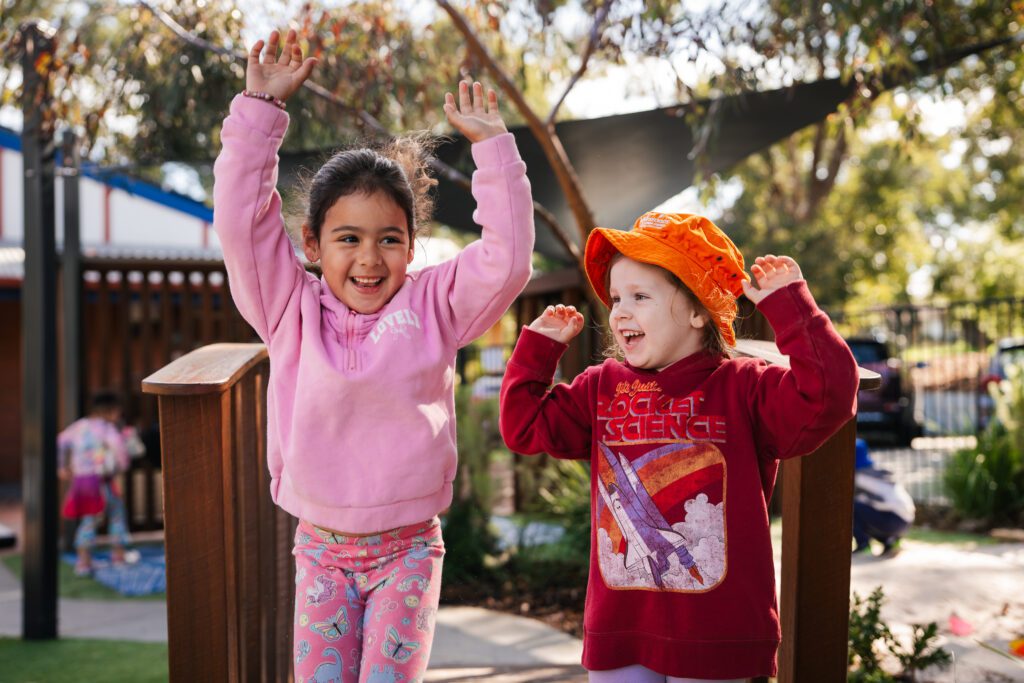
Celebrating Children’s Week 2025: Empowering Every Child to Know Their Rights
In every Affinity Education centre, moments of curiosity and connection happen daily – a child sharing an idea, working with a friend, or proudly reflecting on what they’ve learned. Children’s Week (18-26 October 2025) shines a spotlight on these everyday moments and reminds us why they matter: because every child deserves to be heard, respected, and supported as they learn and grow.
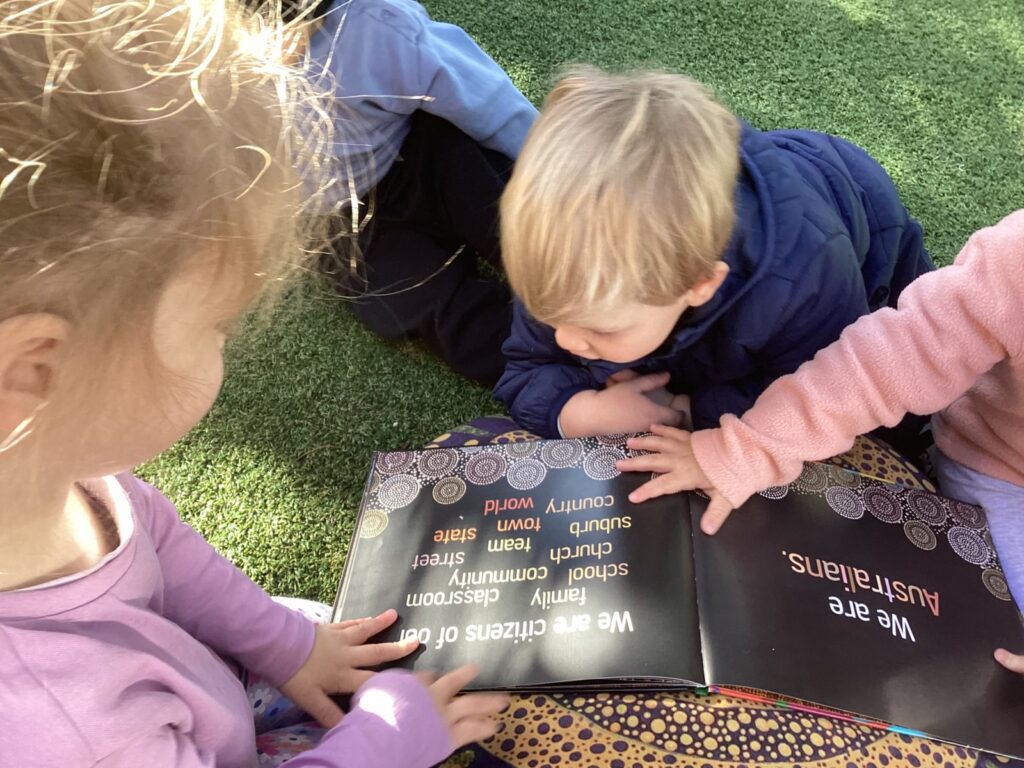
Book Week 2025: Celebrating the Joy of Stories Across Affinity Education Centres
There’s something truly special about the moment a child becomes absorbed in a story. The way their eyes widen at a plot twist, their giggles when a favourite character appears, and the proud smile when they remember a line by heart – these are moments that shape their love for learning.
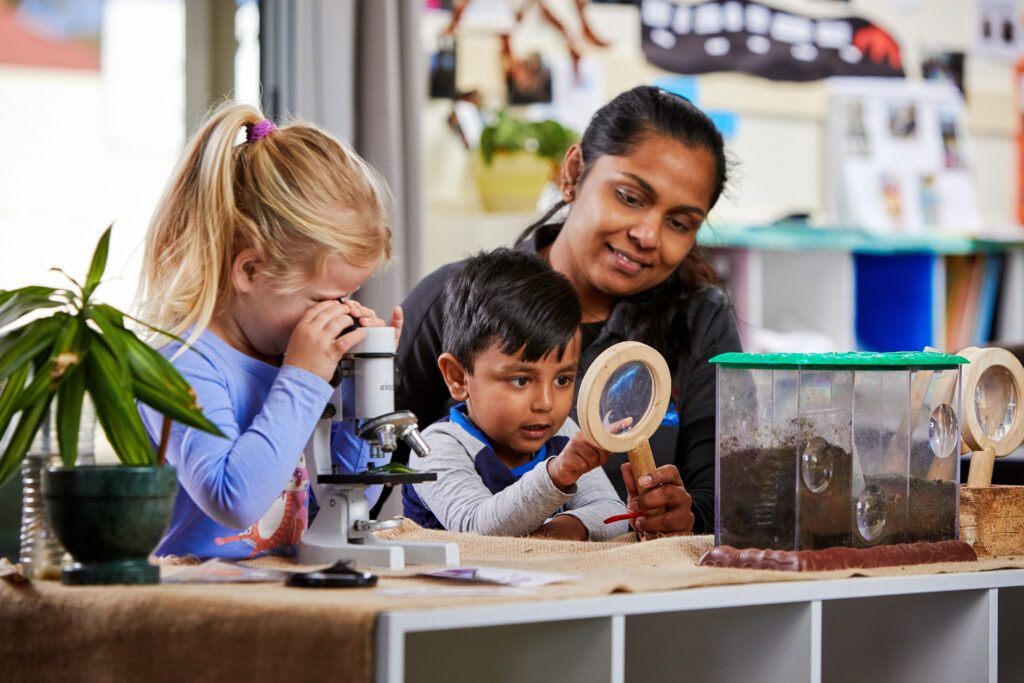
Celebrating National Science Week: How Early Childhood Educators Spark a Love of Discovery
Inspiring Australia’s next generation of critical thinkers starts long before the classroom, it starts with our early childhood educators.
Each year, National Science Week shines a light on the vital role science plays in our world, and the people who inspire us to explore the unknown. This year’s theme, “Decoding the Universe: Exploring the unknown with nature’s hidden language”, encourages Australians of all ages to discover the patterns and mysteries that shape our natural world.
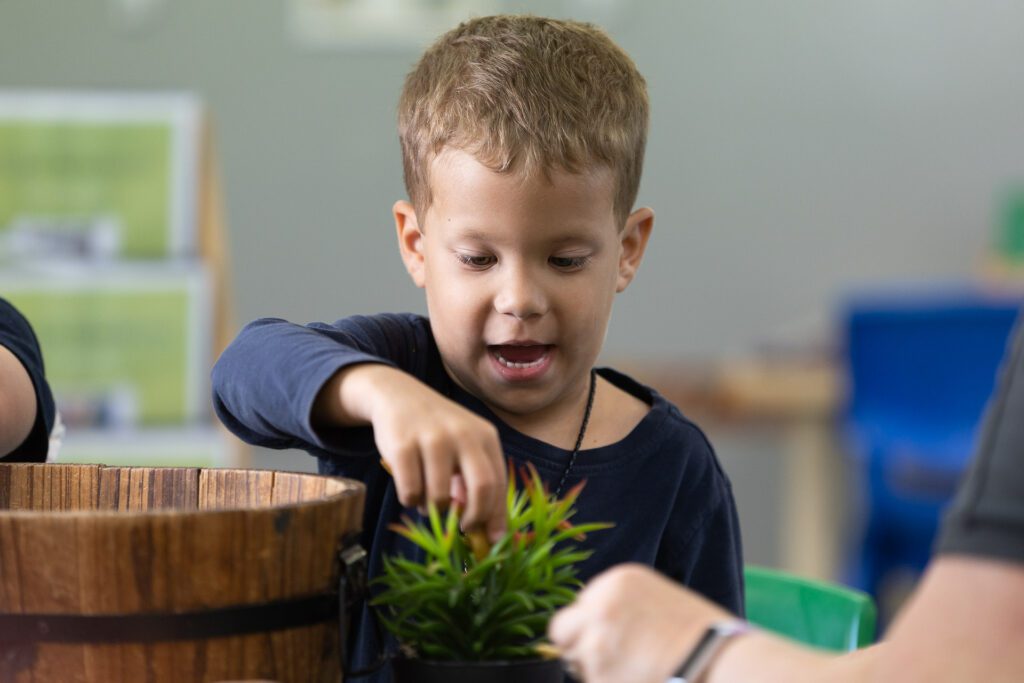
Should I Send My Child to Childcare? Understanding the Benefits for Babies, Toddlers and Preschoolers
At Affinity Education, we know this decision is deeply personal. And we also know how transformative high-quality early education can be for children’s development, wellbeing and confidence.

What Is the Best Approach to Early Childhood Education? A Guide for Families and Educators
Updated: June 2025.
Choosing an early education program is one of the most important decisions you’ll make in your child’s early years. It’s about more than preparing for school – it’s about giving your child the chance to feel safe, curious, and confident in the world around them.
Whether you’re a parent preparing for those first emotional drop-offs or an educator looking for work that truly makes a difference, it’s worth asking: What approach to early education will help children thrive, not just today, but for life?
In this guide, we’ll explore the best-known early childhood philosophies – Montessori and Reggio Emilia – and introduce a modern Australian childcare curriculum built to support every child’s emotional, social, and cognitive development from birth to school age.
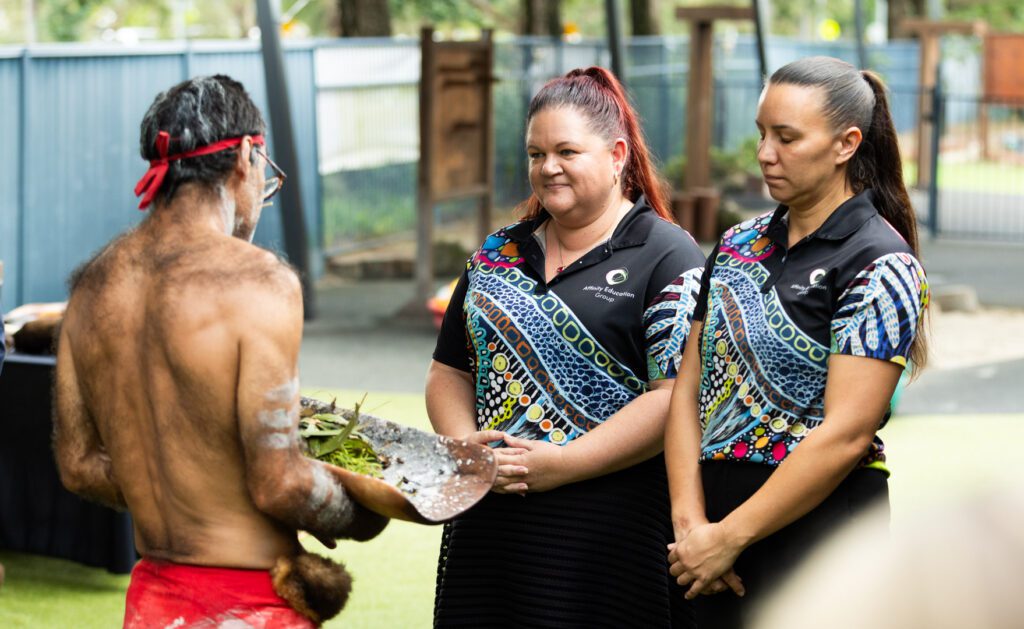
Reconciliation in Early Education: Embedding Cultural Understanding Every Day
At Affinity Education, reconciliation is more than a statement—it’s a promise. A daily, deliberate act of respect, learning, and collaboration. Across more than 240 early learning centres on the traditional lands of First Nations peoples, we are building inclusive communities where Aboriginal and Torres Strait Islander cultures are recognised, celebrated, and embedded in everything we do.
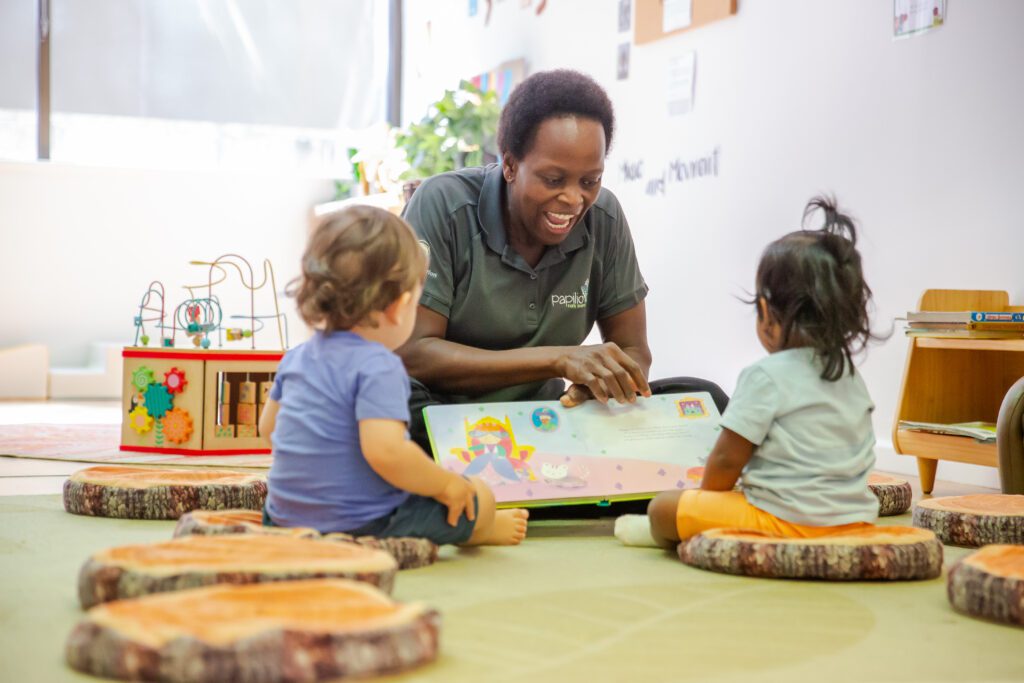
Building Strong Foundations: How Affinity Education Supports Early Learning
Have you ever watched a child’s face light up when they discover something new? Early childhood development is a time of exploration, creativity, and rapid growth, where every experience shapes their future learning. The early years are a time of exploration, creativity, and rapid growth. Foundational learning refers to the essential skills and knowledge children develop between the ages of 0-5, setting them up for success in school and beyond.
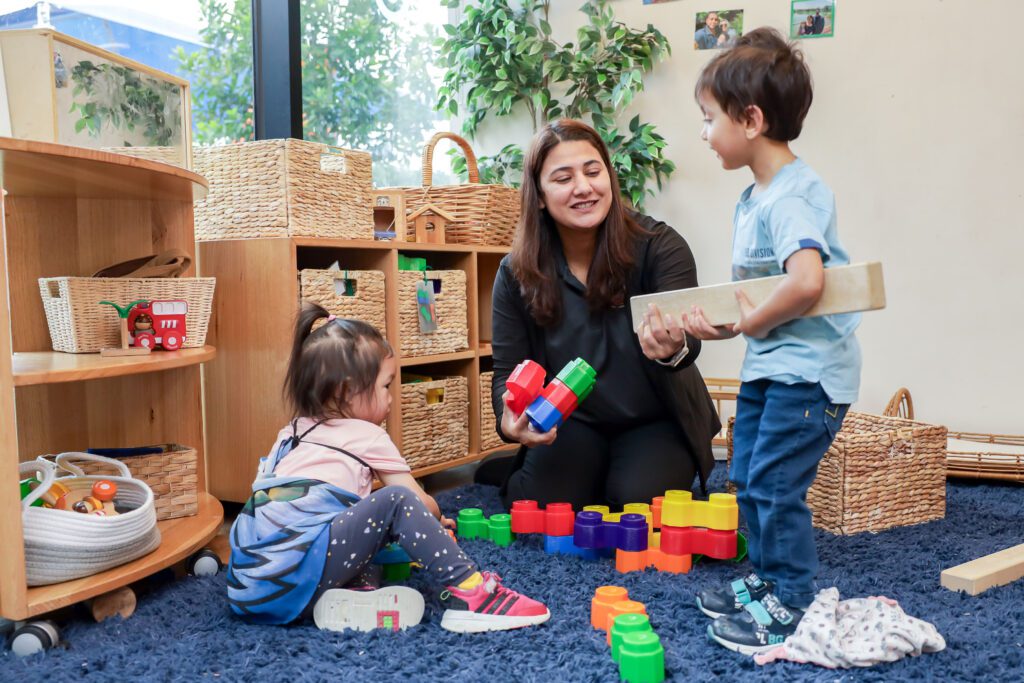
Helping Children Build Social Skills for Lifelong Learning & Confidence
Ever wondered how your child’s friendships and social skills impact their future success? Research shows that strong social-emotional development in early childhood plays a key role in academic achievement, emotional wellbeing, and personal growth. At Affinity Education, we focus on helping children build confidence, communication skills, and positive relationships – all essential for school and life.
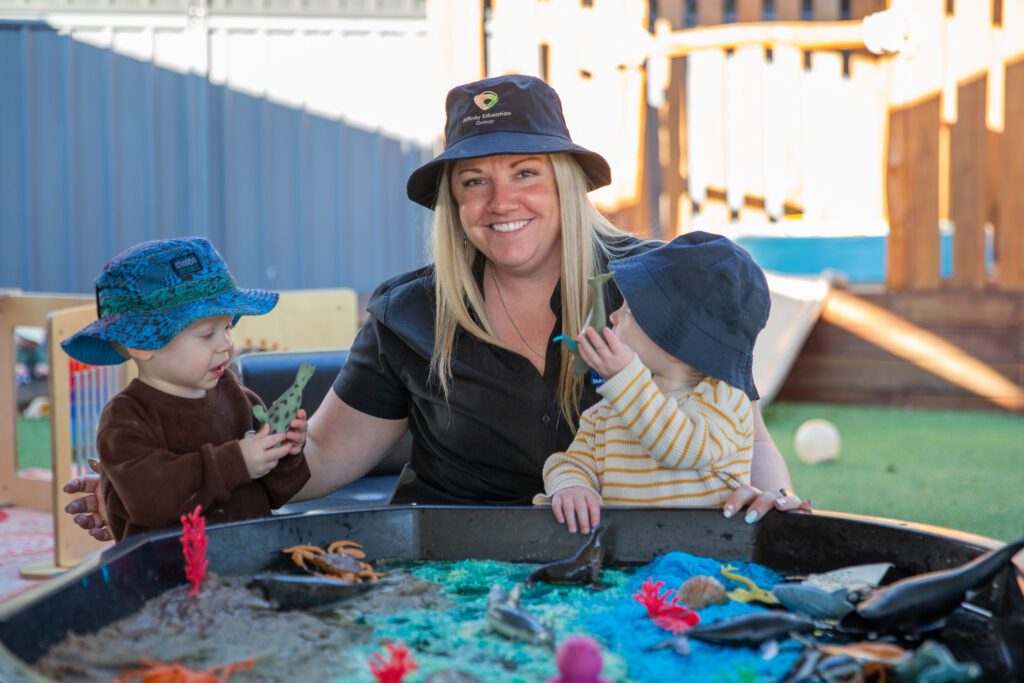
Building Emotional Confidence in Early Childhood: How Affinity Education Nurtures Lifelong Skills
The first five years of a child’s life are a time of incredible growth – not just physically but emotionally, socially, and cognitively. Among the many skills children develop during this period, emotional confidence stands out as one of the most important. It’s the foundation for resilience, relationships, and lifelong learning. At Affinity Education, we know that helping children develop emotional confidence early sets them up for success later in life. Our Lifelong Learning Curriculum, guided by the Early Years Learning Framework (EYLF), ensures children grow in emotional confidence while also developing social connectivity, foundational learning, and physical health and wellbeing. This holistic approach makes our curriculum the most advanced in Australia.
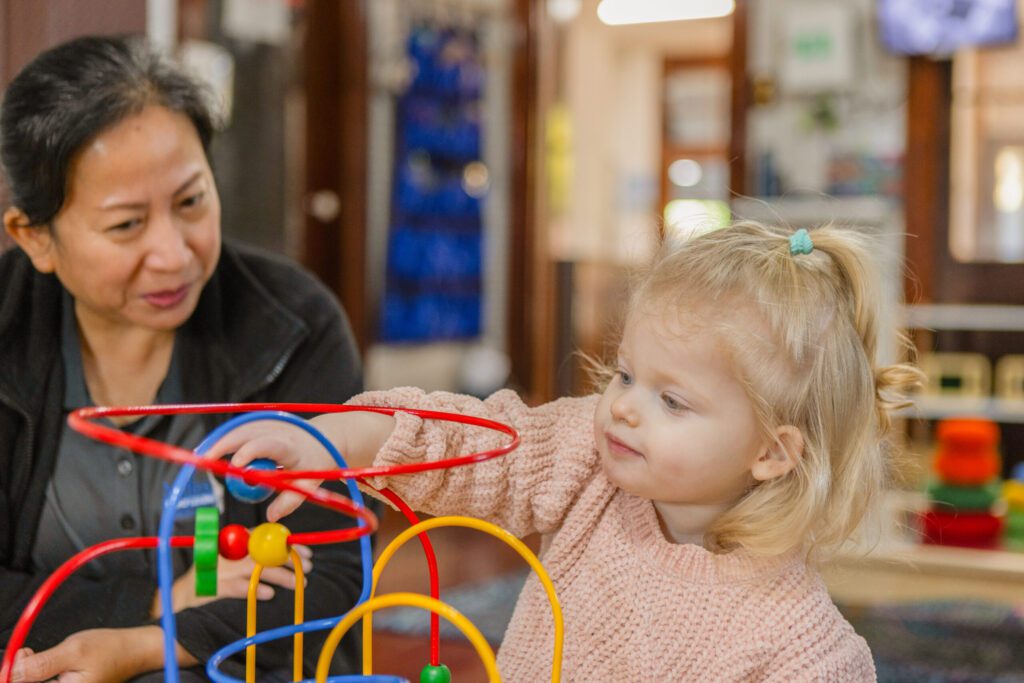
Why Enrolling Your Child in Child Care Before Age 3 Sets Them Up for Lifelong Success
Did you know that 90% of a child’s brain develops before the age of 5? Or that children who attend child care often show stronger social and emotional skills by the time they start school? These early years are a critical period for growth, and the right environment can make all the difference in shaping your child’s future.
